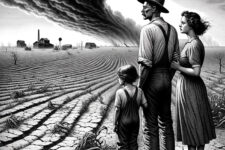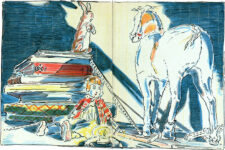
“You sensed that you should be following a different path, a more ambitious one, you felt that you were destined for other things but you had no idea how to achieve them and in your misery you began to hate everything around you.”
― Fyodor Dostoyevsky, Netochka Nezvanova
This quote from Fyodor Dostoyevsky’s “Netochka Nezvanova” touches on a complex interplay of emotions and thoughts that many individuals experience at various points in their lives.
The character reflects on a deep, internal sense of dissatisfaction and a yearning for a different, presumably better, life path.
This sentiment is coupled with the frustration of not knowing how to realize these ambitions, which leads to a pervasive sense of misery and a negative outlook on one’s surroundings.
Dostoyevsky, known for his exploration of the human psyche, delves into the idea of unfulfilled potential and the human desire for purpose and meaning.
The quote encapsulates a moment of introspection and realization that one’s current circumstances do not align with their deeper aspirations or perceived destiny.
This discrepancy between reality and desire can be profoundly disorienting and distressing.
The reference to hating everything around one’s self can be seen as a psychological defense mechanism.
When individuals feel stuck or powerless to change their situation, externalizing their discontent and directing their frustrations towards the world around them can be a way to cope with their feelings of inadequacy or failure.
It’s a manifestation of the struggle between an individual’s ideal self and their reality, often exacerbated by the lack of a clear path forward.
Analyzing this quote in the broader context of Dostoyevsky’s work, it is reflective of his existential themes, where characters frequently grapple with profound questions about identity, purpose, moral values, and the nature of success.
It underscores the author’s interest in the inner turmoil and the complex, often contradictory, nature of human emotions and desires.
“Netochka Nezvanova” itself, an unfinished novel, presents a narrative filled with themes of suffering, self-discovery, and the search for personal meaning within the constraints of society and one’s own limitations.









